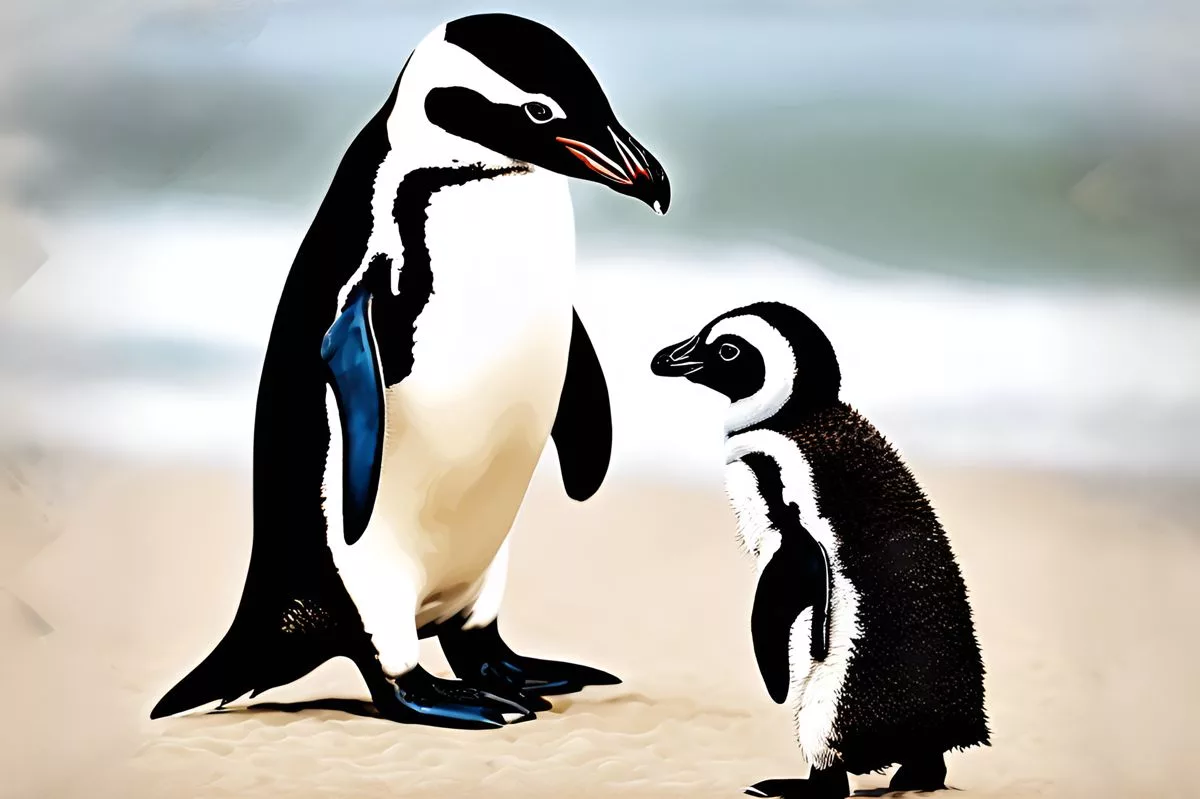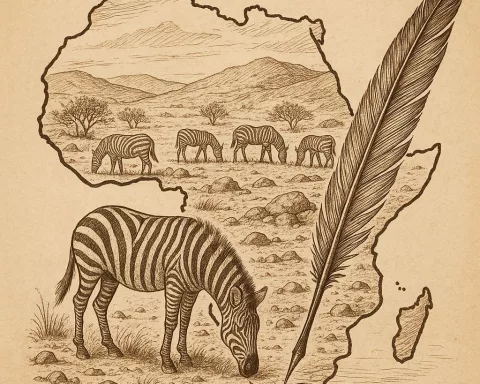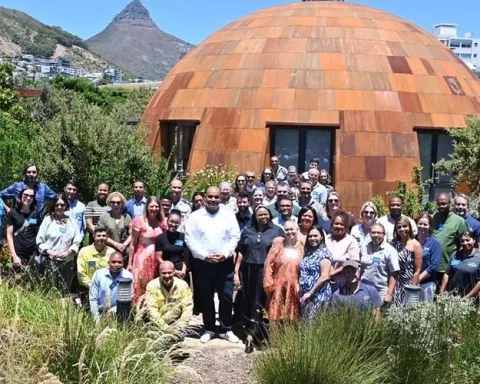SANCCOB is a critical conservation organization in Cape Town that runs the Chick Rearing Unit (CRU) to protect African penguin eggs and chicks. Due to the decline of the African penguin population, the CRU is feeling pressure and urgently needs renovations and expansion to care for more at-risk animals. The new building will allow SANCCOB to accommodate double the number of abandoned and rescued African penguin eggs and chicks and potentially increase release rates. The organization’s efforts are critical to the survival of the threatened African penguin species, which could face extinction by 2035 if the trend continues unchecked.
How is SANCCOB protecting African penguins?
SANCCOB’s Chick Rearing Unit serves as a sanctuary for at-risk African penguin eggs and chicks, which are salvaged from colonies in the Western Cape. Each year, SANCCOB provides refuge to 500-600 African penguin chicks and 300-400 eggs. Upgraded facilities could offer more space, better hygiene standards, and potentially increase release rates.
A Refuge for Endangered Avian Life
In the scenic beauty of Cape Town’s West Coast, the Southern African Foundation for the Conservation of Coastal Birds (SANCCOB) houses a critical arm of its operations, the Chick Rearing Unit (CRU). The CRU plays an instrumental role in safeguarding and nurturing the threatened African penguin species. Yet, due to spatial limitations, the existing facility is now feeling the pressure, making it urgent to renovate and expand.
The CRU serves as a sanctuary for at-risk African penguin eggs and chicks, which are salvaged from colonies in the Western Cape. These creatures often find themselves in life-threatening situations, trapped in risky environments or abandoned due to severe weather conditions or moulting parents. Rangers, employed by SANCCOB in collaboration with various conservation bodies, tirelessly track these helpless eggs and chicks, transporting them to the security of the CRU.
The Struggles of African Penguins and SANCCOB’s Role
The dwindling availability of sardines and anchovies, primary food sources for African penguins, is negatively affecting their breeding and chick-rearing capabilities. The scarcity of food obstructs the birds’ ability to successfully raise chicks during South Africa’s winter breeding season. This lack of food compels the penguins to sacrifice the crucial preparatory period needed for their annual moulting phase.
With an alarming annual population decrease of 7.9%, the African penguin species could face extinction by 2035 if this trend continues unchecked. Such grim forecasts highlight the importance of SANCCOB’s conservation efforts, which focus on reversing this decline. Each year, SANCCOB provides refuge to 500-600 African penguin chicks and 300-400 eggs. This marks a 256% increase over the past seven years.
In 2006, the Chick Bolstering Project was initiated, a joint venture by SANCCOB, conservation authorities, and the South African Government. This deliberate initiative aimed to counter the decline of the African penguin population, which has plummeted 97% over the past century. The remaining wild population comprises roughly 8,300 breeding pairs.
Human Interference and the Need for Enhanced Facilities
The survival battle for penguins intensifies as they vie for food with commercial purse-seine fishing vessels encroaching their natural feeding grounds. This unjust competition compels the birds to travel further for food, often resulting in the abandonment of their nests filled with eggs and chicks.
SANCCOB stands as the sole organisation incubating, hatching wild-origin African penguin eggs, and hand-rearing the chicks for release into the wild. But the surging number of eggs delivered to the facility is stretching the current CRU to its limits, despite its impressive 80% release rate of hand-reared African penguin chicks. Upgraded facilities could offer more space, better hygiene standards, and potentially increase release rates.
Melissa Knott, the Head of Operations at SANCCOB, expressed optimism about achieving their fundraising target. She stated, “The new building will allow us to accommodate double the number of abandoned and rescued African penguin eggs and chicks, which translates to approximately 400 eggs for incubation and 200 little chicks.” She holds hope that their legal case will lead to the government enforcing meaningful closures, which would ensure sufficient food for the hand-reared birds upon their release.
The Future of Penguin Conservation
The proposed CRU in Cape Town signifies much more than a critical measure towards the conservation of the African penguin species. It is primed to be a cornerstone for eco-tourism and a hub for skill advancement in the realm of conservation. To support SANCCOB in their endeavour to construct a new CRU, visit their website or get in touch with Melissa Knott.
1. How is SANCCOB protecting African penguins?
SANCCOB’s Chick Rearing Unit serves as a sanctuary for at-risk African penguin eggs and chicks, which are salvaged from colonies in the Western Cape. Each year, SANCCOB provides refuge to 500-600 African penguin chicks and 300-400 eggs. Upgraded facilities could offer more space, better hygiene standards, and potentially increase release rates.
2. Why are African penguins endangered?
The dwindling availability of sardines and anchovies, primary food sources for African penguins, is negatively affecting their breeding and chick-rearing capabilities. The scarcity of food obstructs the birds’ ability to successfully raise chicks during South Africa’s winter breeding season. With an alarming annual population decrease of 7.9%, the African penguin species could face extinction by 2035 if this trend continues unchecked.
3. How is human interference affecting African penguins?
Commercial purse-seine fishing vessels encroaching their natural feeding grounds is competing with African penguins for food. This unjust competition compels the birds to travel further for food, often resulting in the abandonment of their nests filled with eggs and chicks.
4. How is SANCCOB helping to reverse the declining African penguin population?
SANCCOB stands as the sole organization incubating, hatching wild-origin African penguin eggs, and hand-rearing the chicks for release into the wild. The Chick Bolstering Project, a joint venture by SANCCOB, conservation authorities, and the South African Government, aimed to counter the decline of the African penguin population. Each year, SANCCOB provides refuge to 500-600 African penguin chicks and 300-400 eggs.
5. Why does SANCCOB need to renovate and expand the Chick Rearing Unit?
The number of eggs delivered to the facility is stretching the current CRU to its limits, despite its impressive 80% release rate of hand-reared African penguin chicks. Upgraded facilities could offer more space, better hygiene standards, and potentially increase release rates.
6. How can people support SANCCOB’s efforts to protect African penguins?
To support SANCCOB in their endeavor to construct a new CRU, people can visit their website or get in touch with Melissa Knott. The new CRU is primed to be a cornerstone for eco-tourism and a hub for skill advancement in the realm of conservation.












